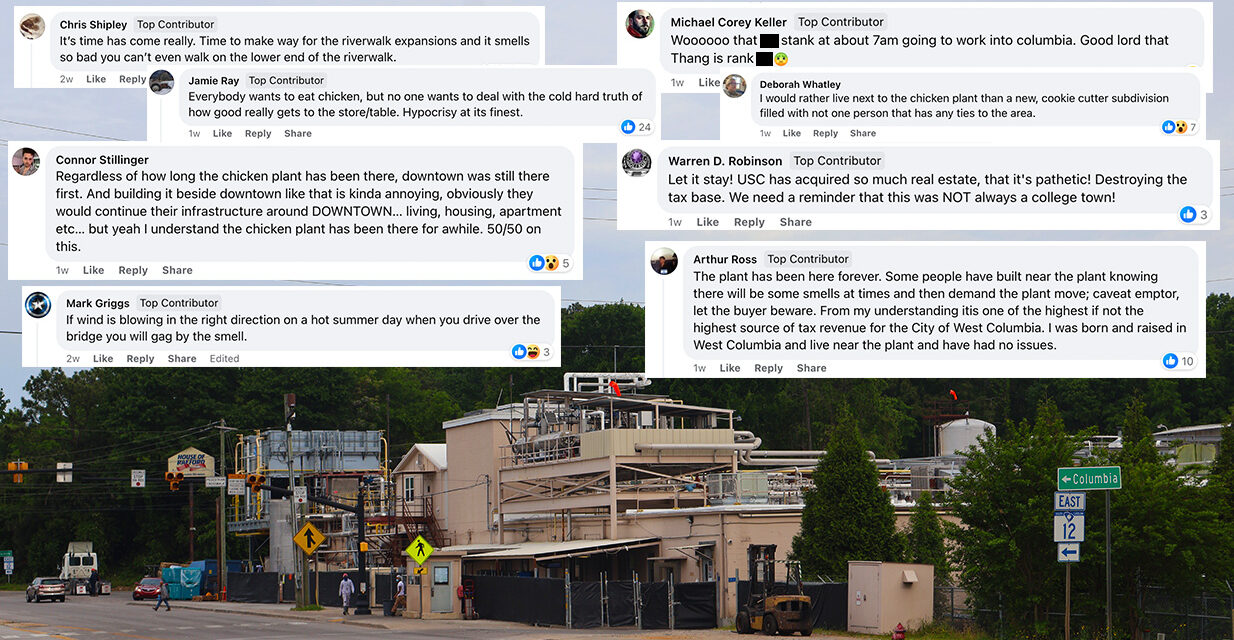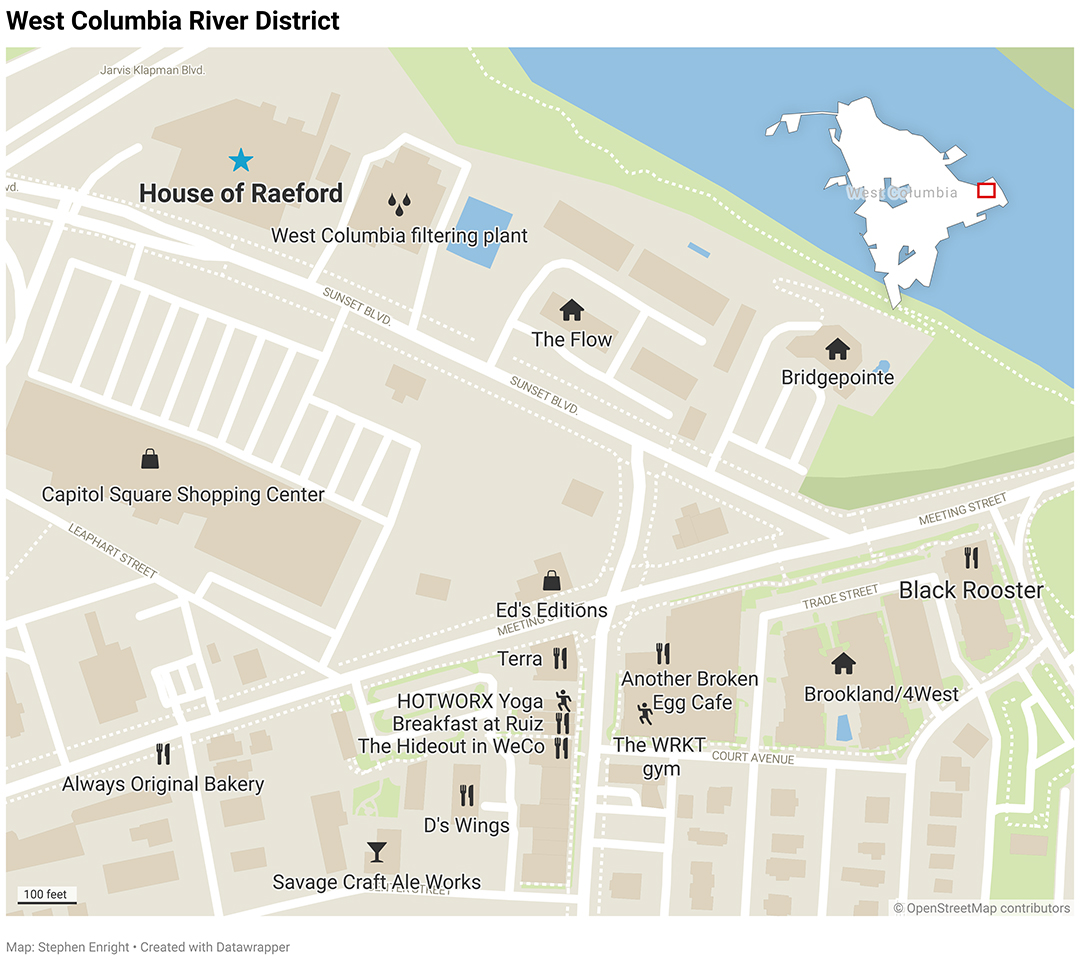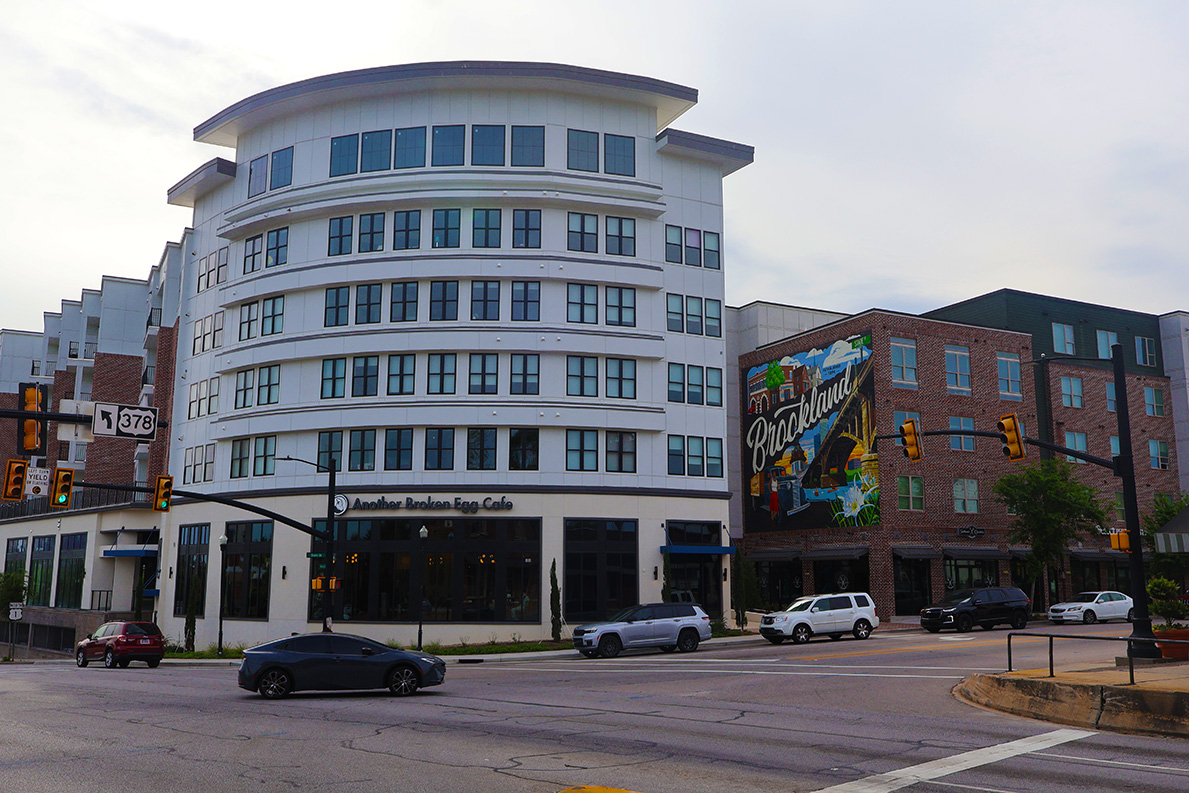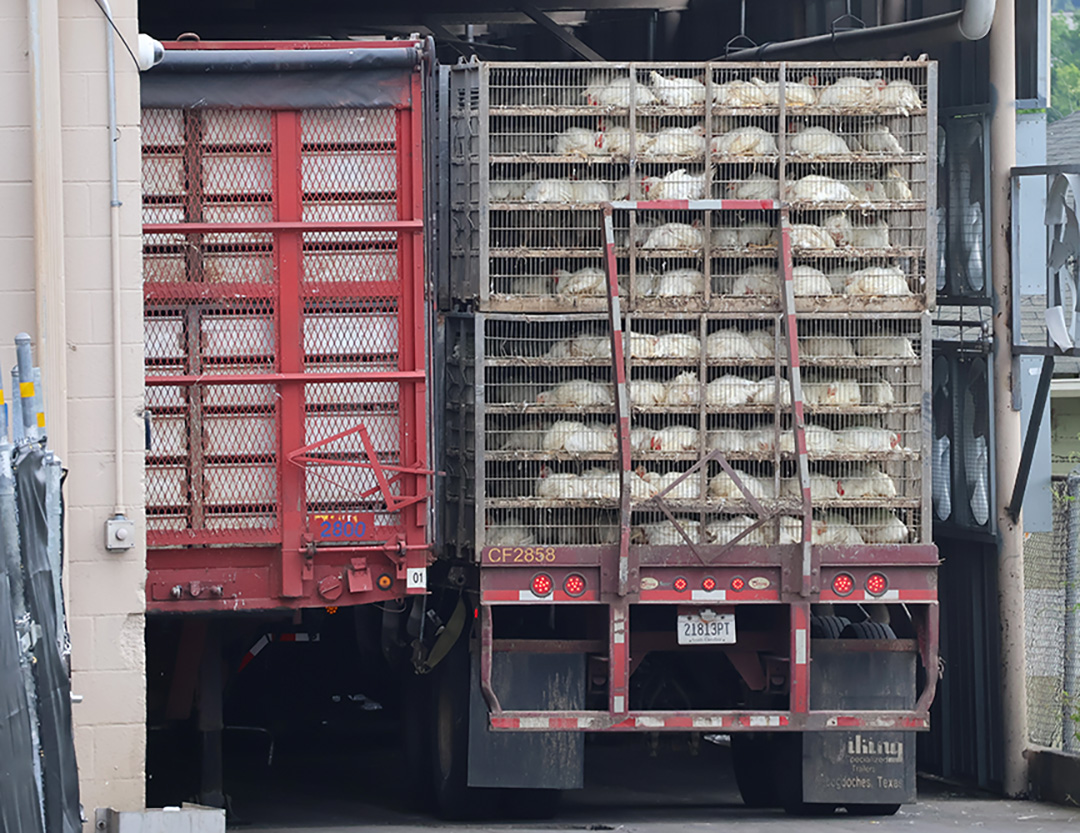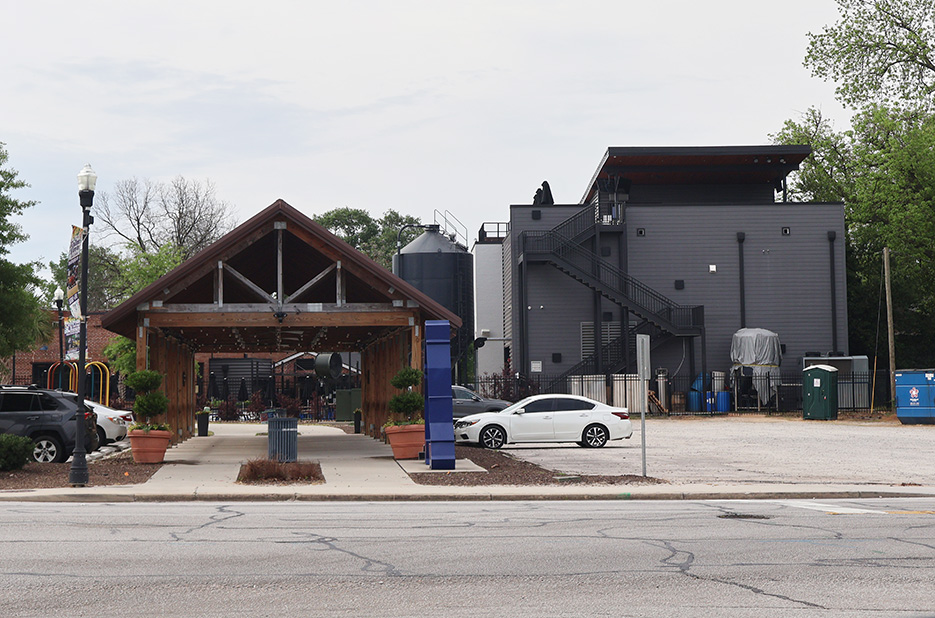West Columbians are divided about the plant. Some think it adds to the gritty charm of their city, while others would like to see a more refined tenant on the riverfront property. (Photo by Stephen Enright/Carolina News and Reporter)
West Columbia’s River District looks a lot like other growing cities, with high-priced condos, walkable retail offerings and plenty of new restaurants.
And then there’s the chicken plant.
House of Raeford owns the processing plant, often called Columbia Farms. The plant is on Sunset Boulevard, nestled between the Jarvis Klapman and Gervais Street bridges, hugging the Congaree River.
Meeting and State streets, just a block away, have become retail and dining hubs.
“West Columbia’s redevelopment – or little Renaissance, or whatever you call it – it’s a patchwork job,” said John Rosella, who lives near the plant.
The longstanding plant brings millions in revenue to the city, but many think it’s time for it to find a new home as West Columbia’s River District redefines itself.
There have been rumors of the plant’s departure in the past, but speculation has ramped up considerably as House of Raeford is in talks with officials in Aiken to build a plant there. Some locals assume a new plant in Aiken would mean the closure of the West Columbia location.
The potential Aiken development lost momentum Tuesday, when Aiken City Council deferred a vote on economic incentives for the proposed plant.
Chuck Underhill, a House of Raeford spokesperson, said the company can’t comment on the project’s status yet.
“We are at the earliest stages of potential expansion in the Midlands, and there are lots of variables,” Underhill wrote in an email.
When the Carolina News and Reporter asked members of a West Columbia Facebook group to voice their opinion on the plant, the post received more than 170 comments.
Many praised its charitable contributions and the tax revenue it brings to the city. They had a nostalgia for the plant as one of the last vestiges of old West Columbia.
Others bemoaned the smells and unsightliness of the facility and the coming and going of live-chicken trucks – which they say is a sore thumb in the growing community.
Some city leaders think the same.
“When that plant was built, trucks were a lot smaller, the facility was a lot smaller,” said West Columbia City Councilman David Moye. “If you look, (West Columbia) did not resemble what it is today.”
West Columbia, Columbia’s cross-river sister in Lexington County, is undergoing significant growth. The River District in particular is attracting residential and retail expansion.
Location, location, location
The House of Raeford plant wasn’t always prime real estate.
Built in 1959 and acquired by the North Carolina-based company in 1998, it has seen the city grow around it.
Now, many say it has overstayed its welcome.
“It looks like something from the 1950s or 60s or 70s,” Rosella said. “It doesn’t look like 2024.”
The plant is on a 1.5-acre plot on the riverfront, with metal silos, dumpsters and trucks full of live chickens.
But the plant is a massive source of revenue for the city. House of Raeford paid over $1.5 million for water and sewer services last year. It paid about $320,000 in property taxes last year, and $165,000 for business licensing.
The plant employs about 600 people per day.
Despite no official plans for it to move, some condos and houses in the area still command asking prices of more than a million dollars. And businesses keep coming.
The question, some say, is whether the chicken plant is holding West Columbia’s development back from its full potential.
A real estate hotspot
Residents said the plant’s odor reaches its peak in the summer heat but has improved dramatically over the years.
“Everybody that looks at a condo that’s three-quarters of a million dollars is going to have to get out of their car and smell,” Moye said.
Next to the plant are the Flow condos, with asking prices as high as $861,000. That same unit sold for $569,225 in April 2021, according to Zillow, an increase of more than 50%.
Two blocks away, a one-bedroom apartment at the Brookland and 4 West apartments is generally leased for about $1,500 a month. Rent for two bedroom units often runs in the mid-two thousands.
“If (the smell) was unbearable, the rentals there would not be through the roof like they are,” Moye said.
Some homes in the gated Congaree Park neighborhood, less than a mile from the plant, are valued at more than $1 million.
“You have million-dollar homes by the river,” Rosella said. “Or you have condos that are quite pricey being built along the river or areas being redeveloped close to the river. So it has always confused me why somebody hasn’t moved out that unsightly chicken plant.”
Major opportunities across the street
There’s more development to come.
“West Columbia is open for business, and we are hungry for growth and development,” said Anna Huffman, a spokesperson for the city of West Columbia. “We want people to look at West Columbia and the River District as a place to invest.”
The vacated Capital Square Shopping Center, an 83,000-square-foot building directly across Sunset Boulevard from House of Raeford, is among the largest parcels of usable land in the River District.
“There’s not much space left in the River District minus the Capitol Square,” Huffman said.
Owned by Baker Commercial Properties, the property is expected to be a mixed-use development with retail and residential development.
City leaders don’t think the House of Raeford plant is necessarily stopping development there. But they but say it could make some developers hesitant to invest.
Moye said the biggest issue with the plant is its proximity to any business that may come to the area. There is no buffer between the plant and neighboring properties. It’s just more than 35 feet from the road.
“It does not stop investment in the area, because … there’s plans to develop across the street,” Moye said. “What it affects is the level of investment and the speed of investment.”
Economic impact
Some say West Columbia needs House of Raeford’s revenue.
The plant uses up to 220,000 gallons of water per month, generating an average of more than $63,000 a month in water revenue for the city. The plant paid more than $1.5 million between March 2023 and March 2024 for water and sewer services.
Diane Hare, who has lived within walking distance of the plant for decades, said many members of the community are too quick to call for the plant to leave.
“My big concern is, how will they make up the lost revenue?” Hare said. “No one has discussed what happens to the people who (would be) unemployed.”
House of Raeford also has a nonprofit wing, Faithful Love Offering for Christ’s Kingdom (FLOCK), that donates food and money to local food banks, public schools and religious organizations.
“Yeah, it stinks,” Hare said. “But they also donate a lot of food.”
House of Raeford was recognized as the 2017 Business of the Year by the Greater Cayce-West Columbia Chamber of Commerce for its charitable efforts and economic impact.
With the Aiken project stalled for the time being, the plant is poised to remain in West Columbia at least for now. But some residents say they’ll be keeping a close eye on those negotiations.
On Meeting and State streets, business is booming. Sunset Boulevard, on the other hand, resembles the older, more industrial West Columbia.
Several trucks of live chickens come to the House of Raeford plant every day, a sight that’s unsettling to many residents.
Industrial architecture still has a presence in the River District but typically in a more trendy form, such as at Savage Brew Ale Works.
West Columbia is only separated from Columbia by the quarter-mile wide Congaree River.

